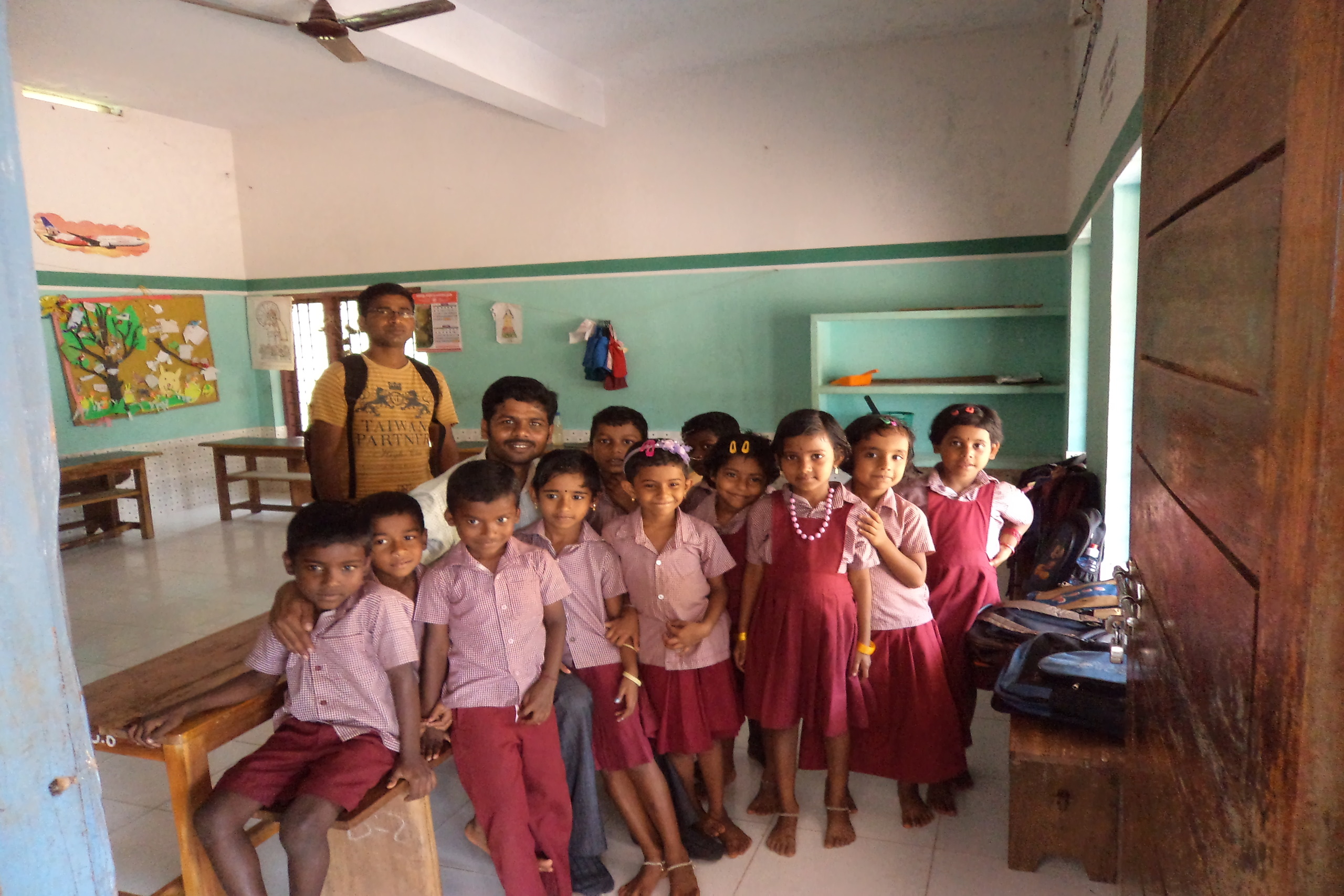We aim to improve the quality of learning in public schools, at scale, to contribute to a better society.
Introduction
Our purpose in the Field is to strengthen the public school education system in India on the ground, with a focus on the more disadvantaged regions of the country.
Our core work is focused on the professional development of government schoolteachers, school leaders and key stakeholders, including government functionaries in education. Our aim is to enable ‘teachers to teach better so that students can learn better.’
District Institutes are the nodes of operation that drive our work in the Field. We also have Teacher Learning Centres (TLCs), which offer a space for teachers to engage with us in a sustained manner. TLCs are housed in different locations and have well-stocked libraries with books, journals, subject-based resources, and space for engagement with teachers.
Our Azim Premji Schools are an integral part of our vision for improving K 12 education in India. They strive to provide quality education with an emphasis on instilling constitutional values through teaching-learning practices, both within and beyond the classroom. We currently have nine schools across the states of Karnataka, Chhattisgarh, Rajasthan, and Uttarakhand.
How we work
We work with government schoolteachers to build their capacities in content and pedagogy in various subjects, and perspectives and belief systems. We engage teachers through several modes including peer-learning platforms, workshops, professional seminars, and teaching practices. Our areas of work include school curricula, textbook development, learning materials, and developing modules for in-service teacher training at the state level.



Our Resource Persons interacting with teachers and students in government schools
We have also been involved in areas of Early Childhood Education (ECE) since 2012 in Sangareddy, Telangana, to build capacity for Anganwadi teachers under the Integrated Child Development Scheme (ICDS) of the Government of India.
We measure the impact of our work in the field through teacher studies and learner assessments. We conduct research on the models of work we use for continuous teacher professional development. We believe these can create knowledge to support advocacy at a national level. We create different levels of practice around school education, maintaining a strong connection between theory and research.
A series featuring a few good government schools across the country.
We work in 55 districts across 7 states and 1 union territory, in around 270 locations that include our Teacher Learning Centres. Our work is built upon the rich experience of two decades engaging at the grassroots in the education system.
Our geographic presence
We work in the relatively underdeveloped districts of the states where we have a presence, and the state capitals.
Teacher Learning Centres
We have Teacher Learning Centres (TLCs) in the major towns of the districts in which we work, close to where teachers live. These centres evolved from long years of our experience in teacher professional development and help us offer multiple modes of engagements for the professional development of teachers.
The idea behind these centres is to provide teachers a proximate space where they can voluntarily participate in various academic engagements. Located in government schools or private spaces, the centres help teachers gather in groups of varied sizes for workshops, discussions, seminars, Voluntary Teacher Forums, melas, and sharing sessions.
TLCs have extensive and well stocked libraries with books, journals, textbooks, newspapers, subject based learning resources, science laboratory apparatus, computers with internet connections and Teacher Learning Materials.
A sample of Teaching - Learning Resources available at our TLCs
Our teams enable and facilitate academic engagements in TLCs and mobilise teachers to visit regularly. These engagements are now often driven by teachers themselves, and have a calendar of varied formal and informal activities.
Theatre and Allied Arts for Social Change - Internship Programme
For centuries, theatre and the arts have been a powerful vehicle for social change, education, and personal growth. Theatre and Allied Arts for Social Change is an internship offered by the Azim Premji Foundation. It is a 2-year programme in Jaipur and Tonk, for graduates in any discipline, in the age group of 20-32. The objective is to equip young individuals with the necessary skills and knowledge in the field of theatre and related arts, to make meaningful contributions, especially towards social change.
Next batch in 2025



















